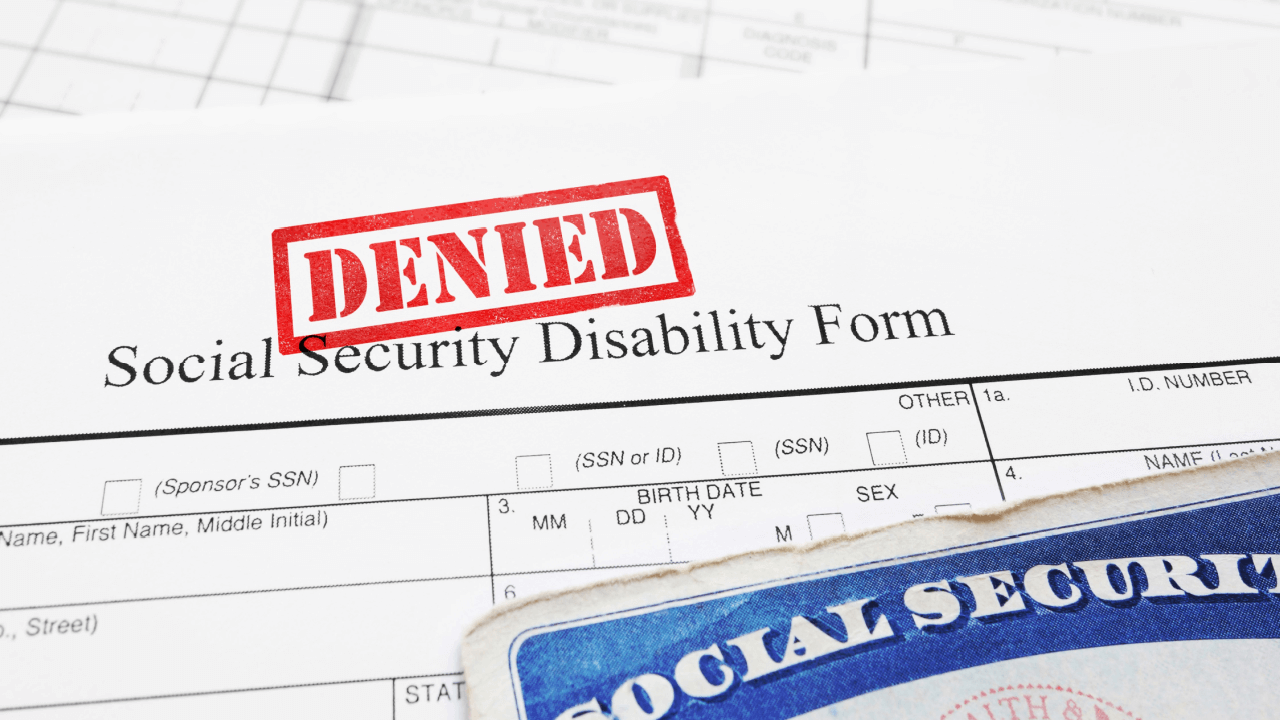
Testing Categories and Disability Types: A Comprehensive Guide to Fair Assessment Practices
Essential Overview of Testing Categories and Disability Types
Testing categories and disability types form the foundation of equitable assessment practices in educational and workplace settings. Understanding these classifications helps educators, employers, and individuals ensure fair testing accommodations that meet legal requirements while providing equal opportunities for success.
About 13% of students receive special education services, and millions of adults face workplace assessments with disabilities. Proper classification ensures compliance and promotes fairness.
This guide explains legal frameworks for testing accommodations, outlines major disability types that need assessment changes, and offers practical strategies for implementing effective accommodation plans across educational and professional settings.
Legal Framework for Testing Categories and Disability Types
The Americans with Disabilities Act (ADA) requires testing organizations to provide reasonable accommodations for qualified individuals. These rules ensure equal access to education and employment.
Section 504 of the Rehabilitation Act focuses on educational testing. It requires schools to offer accommodations that level the playing field without lowering academic standards.
In the workplace, the Equal Employment Opportunity Commission (EEOC) sets similar guidelines. Employers must adjust testing procedures when a disability limits major life activities. Documentation usually includes an evaluation by a qualified professional, a description of functional limitations, and specific accommodation recommendations supported by medical or psychological evidence.
Required Documentation Standards
Proper documentation must establish the existence of a disability, describe its impact on testing performance, and justify requested accommodations. Professional evaluations should be current, comprehensive, and conducted by licensed practitioners with expertise in the specific disability area.
Reasonable Accommodation Definitions
Reasonable accommodations modify testing conditions without fundamentally altering the assessment’s purpose or creating undue hardship for the testing entity. Examples include extended time, alternative formats, assistive technology, or modified testing environments that address specific disability-related barriers.
Legal Requirements:
- Current professional documentation of disability
- Clear connection between disability and testing impact
- Specific accommodation recommendations
- Interactive process between parties
- Consideration of alternative solutions
Recent statistics indicate that accommodation requests have increased by 35% over the past decade, with extended time being the most frequently granted modification across educational and professional testing environments.
Cognitive and Learning Testing Categories and Disability Types
Cognitive and learning disabilities represent the largest category of testing accommodations, affecting how individuals process, understand, and demonstrate knowledge. Learning disabilities, including dyslexia, dysgraphia, and dyscalculia, create specific challenges that require targeted accommodation strategies. Dyslexia affects reading fluency and comprehension, necessitating extended time, alternative text formats, or assistive reading technology. Dysgraphia impacts written expression, making computer-based testing or dictation software essential accommodations.
Attention Deficit Hyperactivity Disorder (ADHD) significantly impacts sustained attention, working memory, and executive functioning during testing situations. Students and professionals with ADHD benefit from reduced distractions, frequent breaks, alternative testing locations, and extended time to compensate for attention difficulties and processing speed variations.
Specific Learning Disabilities
Learning disabilities affect specific academic skill areas while leaving overall intelligence intact. Accommodations must target the specific learning challenge without providing unfair advantages in unaffected areas.
ADHD Testing Accommodations
ADHD accommodations focus on attention, executive functioning, and hyperactivity management. Environmental modifications and timing adjustments prove most effective for this population.
Intellectual Disability Classifications
Intellectual disabilities require comprehensive accommodation plans that consider cognitive abilities, adaptive functioning, and individual strengths when developing assessment modifications.
Common Accommodation Types:
- Extended testing time (typically 1.5x to 2x standard time)
- Alternative test formats (large print, digital, oral)
- Assistive technology (screen readers, speech-to-text software)
- Environmental modifications (separate room, reduced distractions)
- Frequent breaks and flexible scheduling
- Alternative response methods (dictation, typed responses)
Case studies demonstrate that properly implemented accommodations for cognitive disabilities can reduce the achievement gap by up to 40% while maintaining assessment validity and reliability across diverse testing populations.
Sensory and Motor Testing Categories for Disability Types
Physical disabilities encompassing sensory and motor limitations require specialized accommodations that address accessibility barriers without compromising assessment content. Visual impairments ranging from low vision to complete blindness necessitate alternative formats including large print materials, electronic text compatible with screen readers, or Braille translations. Advanced assistive technology such as screen magnification software, high-contrast displays, and audio descriptions enable independent test participation.
Hearing impairments and deafness create communication barriers requiring interpreters, captioning services, or alternative instruction delivery methods. Testing accommodations must consider whether auditory components are essential to the assessment or can be modified through visual alternatives without changing the fundamental measurement objectives.
Vision-Related Testing Accommodations
Visual accommodations range from simple format modifications to complex assistive technology solutions, depending on the severity and nature of the visual impairment affecting test performance.
Hearing Disability Modifications
Hearing-related accommodations focus on communication access and information delivery alternatives that preserve assessment content while ensuring equal participation opportunities.
Accommodation Options:
- Large print or electronic text formats
- Screen reading software and audio descriptions
- Sign language interpreters or real-time captioning
- Alternative input devices and dictation software
- Extended time for technology use
- Accessible testing environments
Technology solutions continue advancing accessibility options, with artificial intelligence-powered tools providing real-time transcription, voice recognition, and adaptive interfaces that automatically adjust to individual disability needs.
“Effective disability accommodations level the playing field rather than lowering standards,” notes Dr. Sarah Chen, Director of Accessibility Services at National Testing Institute. “The goal is removing barriers that prevent individuals from demonstrating their true abilities and knowledge.”
Mental Health Testing Categories and Disability Types
Mental health conditions represent a rapidly growing category of testing accommodations, with anxiety disorders affecting nearly 40 million adults annually and significantly impacting assessment performance. Anxiety disorders create physiological and cognitive barriers during high-stakes testing, including increased heart rate, difficulty concentrating, and memory retrieval problems. Effective accommodations include extended time, separate testing rooms to reduce social anxiety, frequent breaks, and stress-reduction techniques implemented before and during assessments.
Depression and mood disorders affect motivation, concentration, and cognitive processing speed, requiring flexible scheduling options and emotional support during testing periods. Seasonal variations, medication effects, and episode timing influence accommodation needs, making individualized approaches essential for optimal outcomes.
Post-traumatic stress disorder (PTSD) creates unique testing challenges through trauma triggers, hypervigilance, and dissociative episodes that can occur in testing environments. Accommodations must address potential triggers while providing safety measures and alternative testing arrangements when traditional settings prove problematic.
Anxiety Management During Testing
Anxiety accommodations focus on creating calm, predictable testing environments that minimize stress triggers while providing coping strategies and support systems during assessment periods.
Autism Spectrum Accommodations
Autism-related accommodations address sensory sensitivities, communication preferences, and routine maintenance needs that enable successful testing participation without compromising assessment validity.
Statistics indicate that mental health-related accommodation requests have increased by 60% in higher education settings over the past five years, reflecting greater awareness and reduced stigma surrounding psychological disabilities.
Implementation Guide for Testing Categories and Disability Accommodations
Successful accommodation implementation requires systematic assessment processes that balance individual needs with testing integrity and legal compliance. The accommodation determination process begins with comprehensive disability documentation review, followed by interactive discussions between disability services professionals, testing administrators, and individuals requesting accommodations.
Creating inclusive testing environments involves universal design principles that benefit all test-takers while specifically addressing disability-related barriers. Environmental considerations include adequate lighting, minimal distractions, comfortable seating options, and accessible technology infrastructure that supports various assistive devices and software applications.
Training requirements for testing administrators encompass disability awareness, accommodation implementation procedures, assistive technology operation, and legal compliance standards. Regular professional development ensures staff competency in emerging accommodation strategies and evolving legal requirements.
Accommodation Assessment Process
The assessment process involves systematic evaluation of disability documentation, functional impact analysis, and accommodation effectiveness review to ensure appropriate and sufficient support provision.
Environmental Modifications
Environmental accommodations address physical, sensory, and psychological barriers through strategic space design, lighting optimization, noise reduction, and accessibility feature integration.
Implementation Checklist:
- Review current accommodation policies and procedures
- Train staff on disability awareness and legal requirements
- Assess physical accessibility of testing environments
- Evaluate technology infrastructure and assistive device compatibility
- Establish clear communication protocols with accommodation users
- Implement quality assurance and feedback collection systems
Cost-benefit analysis data demonstrates that proactive accommodation implementation reduces legal risks by 75% while improving overall testing satisfaction ratings across all participant demographics.
Common Mistakes: Testing Category Implementation Errors
Inadequate documentation requirements represent the most frequent implementation error, with testing entities either demanding excessive proof or accepting insufficient evidence of disability-related testing impacts. Proper documentation standards require current professional evaluations that clearly establish disability presence, functional limitations, and specific accommodation needs without creating unreasonable barriers to access.
One-size-fits-all accommodation approaches fail to address individual disability variations and unique testing challenges. Standardized accommodation packages may provide some benefits but often miss critical individual needs that could significantly impact testing performance and outcomes.
Insufficient training for testing staff creates implementation inconsistencies, legal compliance risks, and negative experiences for individuals with disabilities. Common training gaps include assistive technology operation, emergency procedures for disability-related incidents, and appropriate communication strategies with diverse disability populations.
Technology accessibility oversights occur when testing platforms, assistive devices, or software applications lack compatibility or fail to meet established accessibility standards. Regular technology audits and user testing with diverse disability populations prevent many accessibility barriers before they impact testing experiences.
Future Outlook: Evolving Testing Categories and Disability Recognition
Emerging disability categories reflect advancing medical understanding and changing social recognition of previously unacknowledged conditions. Long COVID symptoms, including cognitive fatigue and concentration difficulties, represent new accommodation challenges requiring flexible approaches and evolving best practices as research continues developing.
Technology advancements in accessibility include artificial intelligence-powered real-time captioning, voice recognition systems with improved accuracy for speech differences, and adaptive testing platforms that automatically adjust to individual user needs and preferences without requiring advance accommodation requests.
Take Action: Implementing Fair Testing Practices Today
The time for inclusive testing practices is now. Every day that passes without proper accommodations represents missed opportunities for individuals with disabilities to demonstrate their true capabilities and potential. Whether you’re an educator, employer, testing administrator, or policy maker, you have the power to create meaningful change in your organization and community.
Essential Government Resources:
Access official guidance and support from these key federal agencies:
- U.S. Department of Education – Office for Civil Rights: ed.gov/about/offices/list/ocr – Provides comprehensive guidance on Section 504 compliance and educational testing accommodations
- U.S. Department of Justice – ADA Information: ada.gov – Features the complete ADA standards, technical assistance documents, and enforcement guidance
- Department of Health and Human Services – Office for Civil Rights: hhs.gov/ocr – Provides healthcare-related disability rights information and accommodation guidance
- Social Security Administration – Disability Determination: ssa.gov/disability – Offers official disability classification criteria and documentation standards
Next Steps: Getting Testing Accommodations for Your Disability Type
Contact qualified professionals to assess your specific testing categories and disability types. Schedule consultations with disability services coordinators, gather necessary documentation, and advocate for appropriate accommodations that ensure fair testing opportunities.
Frequently Asked Questions
1. What are the main testing categories for disability types?
The primary testing categories include cognitive/learning disabilities, physical/sensory impairments, and mental health conditions. Each category requires specific accommodation approaches based on individual needs and legal requirements.
2. How do I request testing accommodations for my disability type?
Contact your institution’s disability services office with medical documentation, complete accommodation request forms, and meet with specialists to determine appropriate testing modifications based on your specific disability category.
3. Are employers required to provide testing accommodations for all disability types?
Yes, under the ADA, employers must provide reasonable accommodations for qualified individuals with disabilities during testing, unless it creates undue hardship for the organization.
4. What documentation is needed for different testing categories?
Documentation requirements vary by disability type but typically include medical records, professional assessments, and functional impact statements from qualified healthcare providers or specialists.
5. Can testing accommodations be denied for certain disability types?
Accommodations can only be denied if they fundamentally alter the test’s purpose, create undue burden, or if adequate documentation isn’t provided to support the accommodation request.
Key Takeaways
- Legal Compliance: Testing categories and disability types are protected under federal laws requiring reasonable accommodations
- Individual Assessment: Each disability type requires personalized accommodation strategies based on functional limitations and testing requirements
- Documentation Standards: Proper medical documentation is essential for obtaining testing accommodations across all disability categories
- Environmental Factors: Testing environments must be modified to accommodate various disability types including sensory, physical, and cognitive needs
- Ongoing Evolution: Testing categories continue expanding as understanding of disability types grows and technology improves accessibility options


